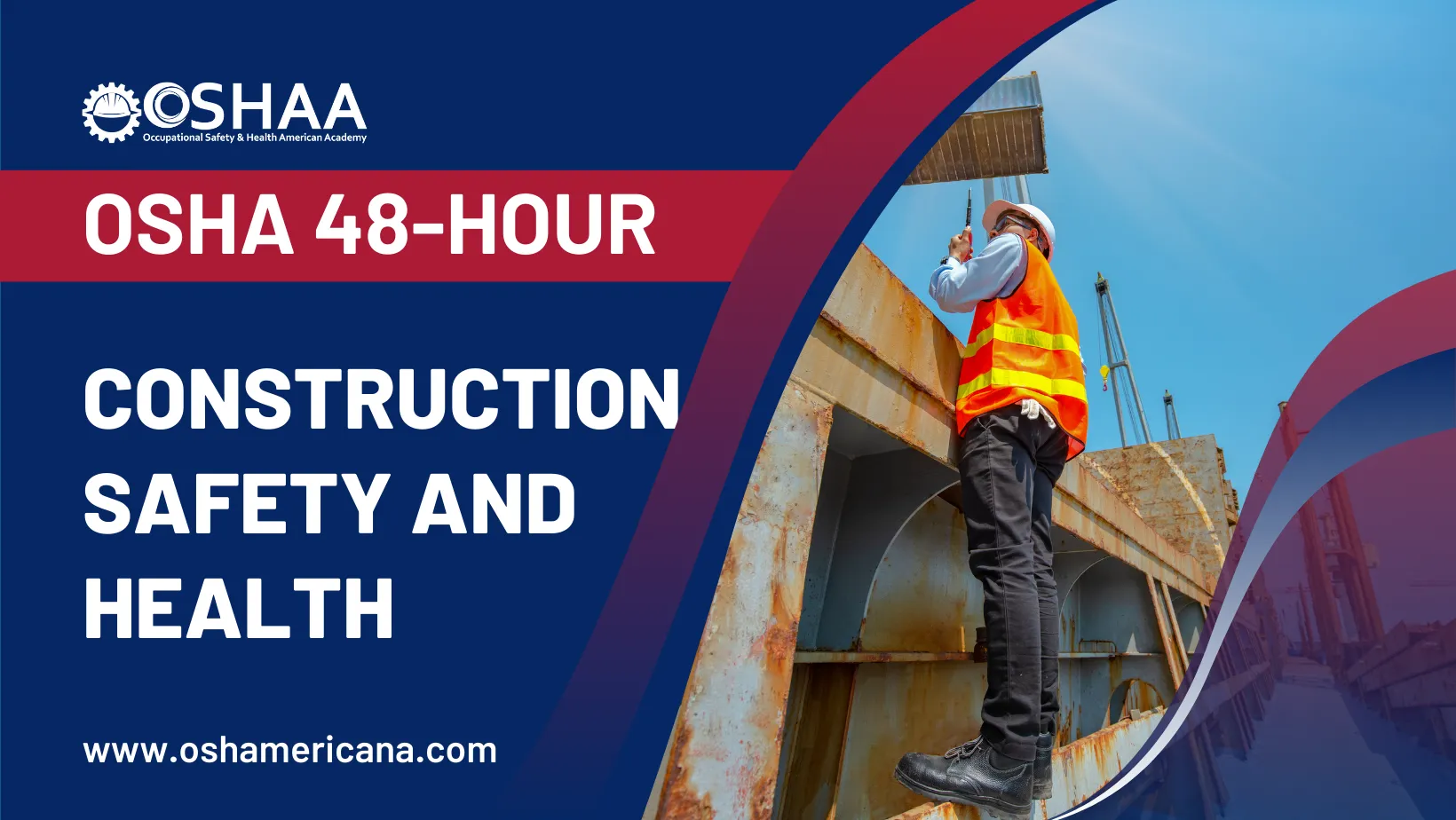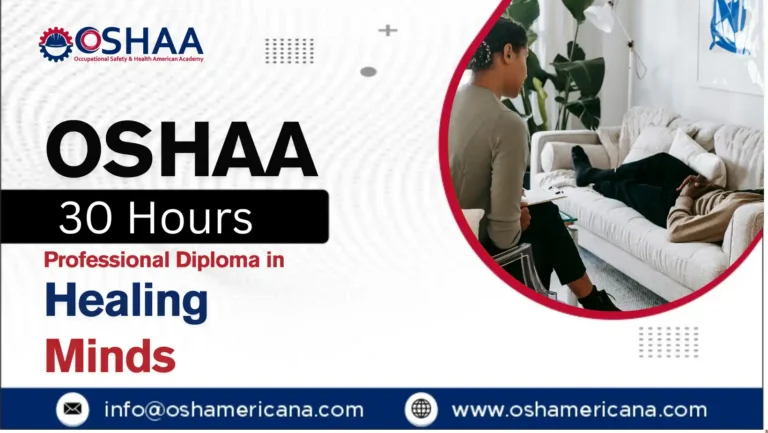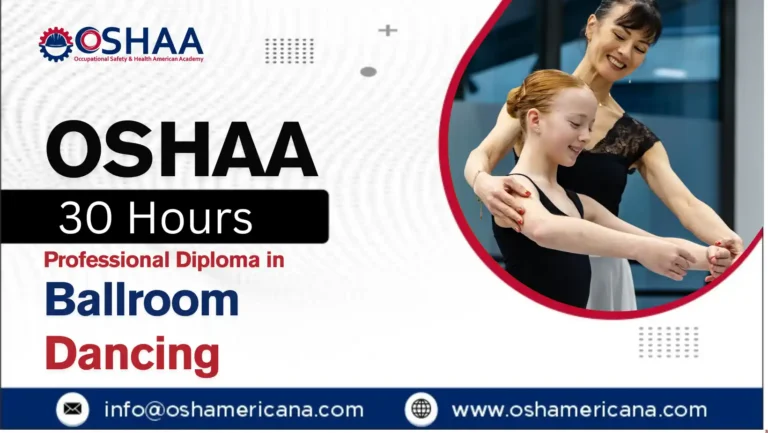Sports injuries can significantly impact an athlete’s performance, well-being, and future prospects. As the demand for specialized care in sports injury management grows, the need for skilled sports therapists is more critical than ever. The OSHAA 30-Hours Professional Diploma in Therapy for Sports Injuries is a comprehensive training program that equips healthcare professionals with the knowledge and skills required to effectively treat, rehabilitate, and prevent sports-related injuries.
This diploma provides a robust curriculum that covers both the theoretical and practical aspects of sports injury management. Designed for healthcare professionals, fitness experts, and anyone involved in the rehabilitation of sports injuries, this course offers valuable insights into effective treatment strategies, rehabilitation protocols, and injury prevention techniques.
Completing the OSHAA 30-Hours Professional Diploma in Therapy for Sports Injuries will significantly enhance your credentials and career opportunities. Whether you are already working in sports therapy or seeking to break into this rewarding field, this diploma ensures you have the expertise to provide high-quality care to athletes and active individuals. With the growing demand for specialized sports injury therapists, this qualification will help you stand out in a competitive job market.
The OSHAA 30-Hours Professional Diploma in Therapy for Sports Injuries is an essential qualification for anyone seeking to specialize in sports therapy or injury rehabilitation. With its focus on practical skills, evidence-based treatments, and injury prevention strategies, this diploma equips you with the tools you need to provide top-tier care for athletes and active individuals.
OSHAA 30-Hours Professional Diploma in Therapy for Sports Injuries
Study Units
Learning Outcomes
Introduction to Sports Injuries: Types and Causes (3 hours)
- Identify the most common types of sports injuries, including sprains, strains, fractures, and dislocations.
- Understand the various causes of sports injuries, such as overuse, trauma, and inadequate training.
- Learn about the role of biomechanics and environmental factors in the development of sports injuries.
Anatomy and Physiology of Musculoskeletal System (4 hours)
- Understand the structure and function of bones, muscles, tendons, ligaments, and joints in relation to sports activities.
- Learn how the musculoskeletal system responds to stress and strain during physical exertion.
- Gain insight into the common musculoskeletal injuries and their impact on movement and performance.
Injury Assessment and Diagnosis Techniques (4 hours)
- Master the key techniques for assessing sports injuries, including visual examination, palpation, and functional testing.
- Learn how to differentiate between various types of injuries based on symptoms and clinical findings.
- Understand the process of creating an accurate diagnosis and determining the severity of an injury.
Rehabilitation and Recovery Techniques for Sports Injuries (4 hours)
- Gain knowledge of evidence-based rehabilitation techniques to aid recovery from sports injuries.
- Learn about progressive rehabilitation exercises, manual therapy, and modalities to enhance healing.
- Understand the importance of a structured rehabilitation plan to optimise recovery and prevent re-injury.
Therapeutic Modalities for Injury Management (4 hours)
- Explore the various therapeutic modalities used in injury management, such as cryotherapy, heat therapy, ultrasound, and electrical stimulation.
- Learn how to select and apply appropriate modalities based on the type and stage of the injury.
- Understand the role of each modality in reducing pain, inflammation, and promoting tissue repair.
Strengthening and Mobility Exercises for Injury Prevention (4 hours)
- Understand the importance of strengthening exercises in injury prevention and improving overall musculoskeletal health.
- Learn mobility exercises that enhance flexibility and reduce the risk of injury during physical activity.
- Develop safe and effective exercise routines for athletes to enhance performance and prevent injuries.
Sports Nutrition and its Role in Injury Recovery (3 hours)
- Learn the role of nutrition in supporting the body’s healing process during injury recovery.
- Understand the importance of hydration, macronutrients, and micronutrients in tissue repair and overall recovery.
- Gain knowledge of dietary strategies and supplements that can accelerate recovery and improve performance.
Psychological Aspects of Injury Recovery (4 hours)
- Explore the psychological challenges athletes face during injury recovery, including stress, anxiety, and frustration.
- Learn strategies to support athletes’ mental well-being and resilience throughout the recovery process.
- Understand the role of mental conditioning in injury rehabilitation and how to help athletes stay motivated and focused on their recovery.
- Comprehensive Understanding of Sports Injuries: Gain a deep understanding of the different types of sports injuries, their causes, and how to assess and diagnose them accurately, ensuring effective treatment.
- Practical Rehabilitation Skills: Learn evidence-based rehabilitation techniques that are critical for athletes’ recovery, including progressive strengthening exercises, mobility work, and therapeutic modalities.
- Expertise in Injury Prevention: Equip yourself with the knowledge and tools to implement preventative strategies, helping athletes reduce the risk of injuries through targeted exercises and proper warm-up routines.
- Therapeutic Modalities Knowledge: Develop proficiency in using therapeutic modalities such as cryotherapy, heat therapy, ultrasound, and electrical stimulation to aid recovery and alleviate pain.
- Improved Rehabilitation Protocols: Enhance your ability to create tailored rehabilitation plans for sports injuries, guiding athletes through their recovery in a safe and effective manner.
- Sports Nutrition Insights: Understand the vital role of nutrition in injury recovery, learning how to advise athletes on diet and supplements to optimise healing and performance.
- Psychological Support Techniques: Gain insight into the psychological aspects of injury recovery, enabling you to help athletes cope with the mental challenges of rehabilitation and maintain motivation.
- Hands-On Practical Experience: The course offers practical, real-world applications that enable you to apply your learning to actual injury situations, ensuring you are prepared for the challenges of sports therapy.
- Career Advancement: This diploma will enhance your qualifications, making you more competitive in the field of sports therapy and opening doors to career progression in clinics, sports teams, or private practices.
- Up-to-Date Knowledge: Stay current with the latest trends, treatments, and techniques in sports injury management, ensuring you can provide the highest level of care to athletes.
- Increased Patient Satisfaction: By mastering rehabilitation, prevention, and recovery strategies, you’ll be able to deliver high-quality care that enhances athlete outcomes and satisfaction.
- Flexible Learning Structure: With 30 hours of content, the course offers flexible learning options, making it easier for professionals to balance studies with their work commitments.
The OSHAA 30-Hours Professional Diploma in Therapy for Sports Injuries is designed for healthcare professionals, fitness experts, and anyone involved in the rehabilitation and prevention of sports-related injuries. This course is ideal for:
- Sports Therapists: Professionals who want to specialise in the treatment, rehabilitation, and prevention of sports injuries, improving their clinical practice and skill set.
- Physiotherapists: Physiotherapists who seek to expand their knowledge in sports injury management, focusing on rehabilitation techniques and therapeutic modalities.
- Personal Trainers and Fitness Coaches: Fitness professionals looking to understand sports injury prevention and rehabilitation in order to offer more comprehensive care to their clients.
- Athletic Trainers: Trainers working with sports teams or individual athletes who wish to deepen their expertise in injury diagnosis, rehabilitation, and prevention.
- Rehabilitation Specialists: Healthcare workers focused on rehabilitation, including occupational therapists and rehabilitation technicians, who want to broaden their knowledge in sports injury management.
- Sports Medicine Professionals: Doctors, nurses, and healthcare workers who work in sports medicine and want to enhance their ability to support athletes through effective injury management and recovery strategies.
- Health and Wellness Professionals: Individuals in the wellness sector, such as chiropractors, sports nutritionists, and wellness coaches, who are looking to expand their knowledge of sports injury prevention and recovery techniques.
- Aspiring Sports Therapy Professionals: Individuals looking to start a career in sports therapy or injury rehabilitation and seeking a recognised qualification to enter the field.
This course is perfect for anyone working with athletes or active individuals who wish to gain in-depth knowledge and practical skills in the management and prevention of sports injuries. Whether you’re new to the field or seeking to advance your career, this diploma provides the essential tools to make a difference in sports injury care.







